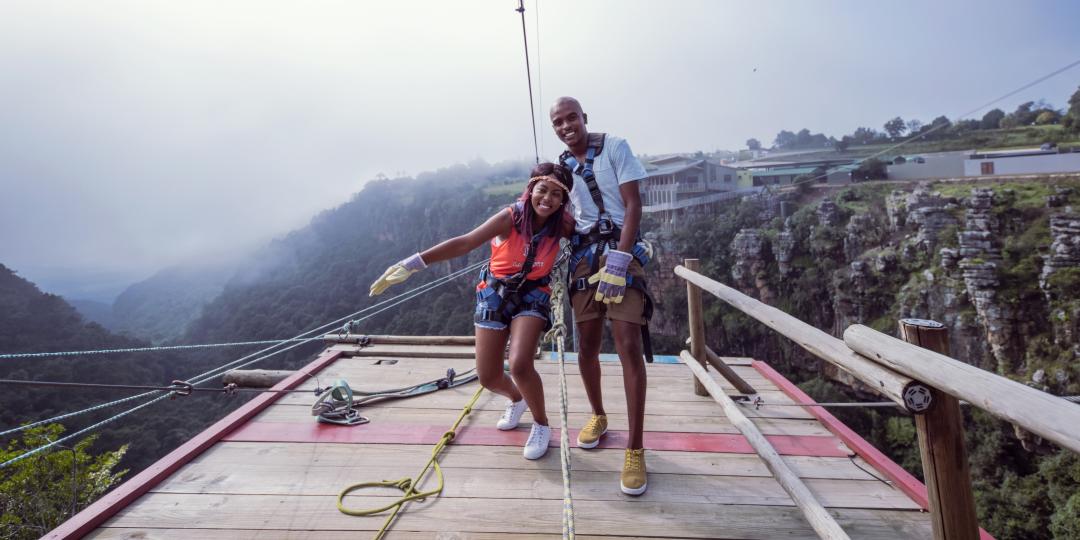Adventure tourism, expected to grow in prominence over the coming years, holds significant potential for South Africa’s rural communities, according to Andre du Toit, SATSA Adventure Chapter Chair and Safari and Tourism Insurance Brokers (SATIB) Head: Business Development.
The global adventure tourism market is set to reach R88trn (€4.3trn) by 2032, growing at an annual rate of 28.7%, according to a report by Allied Market Research.
“Adventure tourism has the potential to significantly boost rural areas in the country by bringing in economic benefits, creating job opportunities, preserving local environment, culture and heritage, and promoting sustainable development,” Du Toit told Tourism Update.
Benefits
He gave the following benefits of adventure tourism for rural areas:
- Economic growth: Adventure tourism can inject much-needed revenue into rural economies. Travellers who seek authentic experiences are likely to spend money on guiding services, accommodations, food and transportation to mention a few. The influx of spending can have a multiplier effect, benefiting local businesses and stimulating economic growth.
- Job creation: The growth of adventure tourism requires a variety of services and activities, ranging from guides, instructors, and transportation operators to local artisans, cooks, and hospitality staff. This expansion in tourism-related services can create diverse job opportunities for local residents, reducing the country’s critical unemployment rates and driving rural development.
- Cultural preservation: Adventure tourists often seek authentic experiences, including interactions with local communities and immersion in local cultures. This demand can motivate rural areas to preserve their cultural heritage, traditions, and craftsmanship. This, in turn, can provide a source of pride for the local population and help maintain their cultural identity.
- Environmental conservation: Adventure tourism is often centred on nature-based activities such as hiking, kayaking, birdwatching, walking trails and other ecotourism-related experiences. The adventure traveller is more environmentally conscious and expects to find natural areas well-kept, litter free, and thriving. This creates an incentive for rural areas to conserve and protect their natural environments, promoting sustainability and responsible tourism practices. This is also a global trend.
- Entrepreneurship opportunities: Adventure tourism also lends itself to local entrepreneurial development. Individuals can create unique experiences and services tailored to their specific area and to the preferences of adventure travellers. This can lead to the growth of small businesses and the diversification of the local economy.
“There are so many more benefits that adventure tourism can bring. Think of cultural exchange and understanding, think about the long-term infrastructural development, educational opportunities and revitalisation of declining areas. Think of the reduced pressure on urban areas and what employment can do to reduce crime,” Du Toit added.
He further noted that, to maximise the positive impact of adventure tourism, it was crucial for local governments, communities, and stakeholders to work together to ensure sustainable and responsible development. “Balancing the benefits of tourism with the preservation of local culture and environment is essential for long-term success.”
Challenges
One of the challenges of adventure tourism is that adventure operators are typically small businesses with limited budgets for marketing.
“We are working at an association level and collaborating with representation groups, to bring more attention to adventure tourism,” said Du Toit.
Another challenge is associated risk. “We are aware of the inherent risk factor in this sector and are well on our way to establishing a self-regulated world-class activity standard that will provide comfort for buyers and travellers alike.”
Du Toit also recently shared with Tourism Update what tour operators and other tourism suppliers could do to mitigate risks for all parties.
Opportunities
SATSA aims to promote opportunities within the region’s adventure tourism market by collaborating with the likes of Wesgro, the official tourism, trade and investment promotion agency for Cape Town and the Western Cape.
“We do familiarisation trips to introduce buyers to products and encourage the adventure community to participate. We’d like to scale this nationally and have submitted proposals that will unlock budget to implement this.”
To further promote the adventure tourism industry, a select few businesses would be attending the Adventure Travel World Summit in Japan later this year, said Du Toit.





















